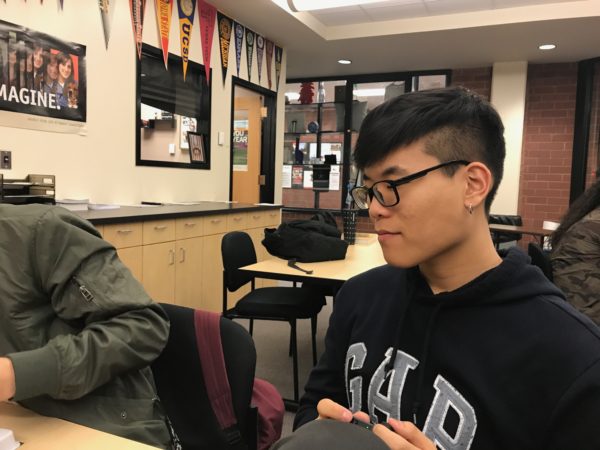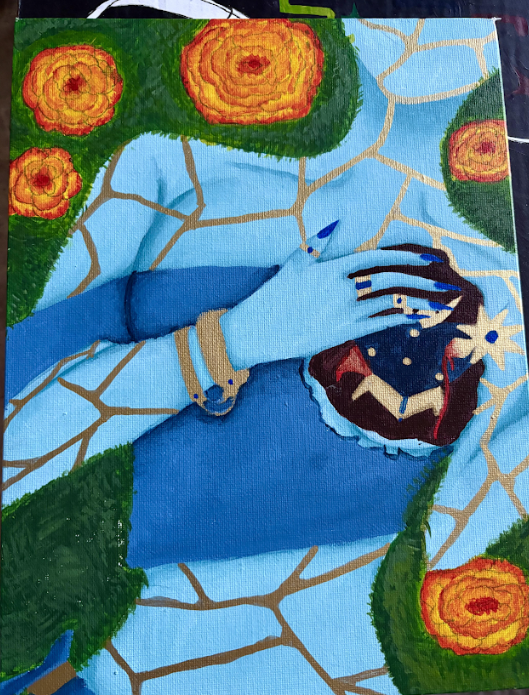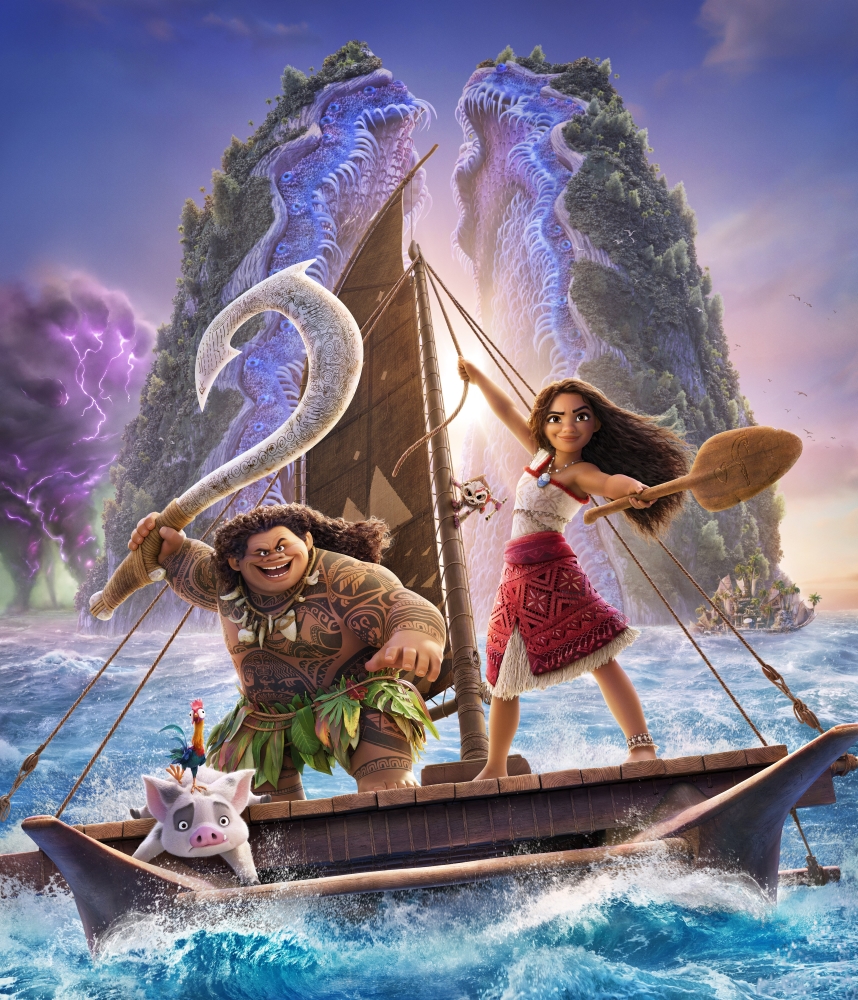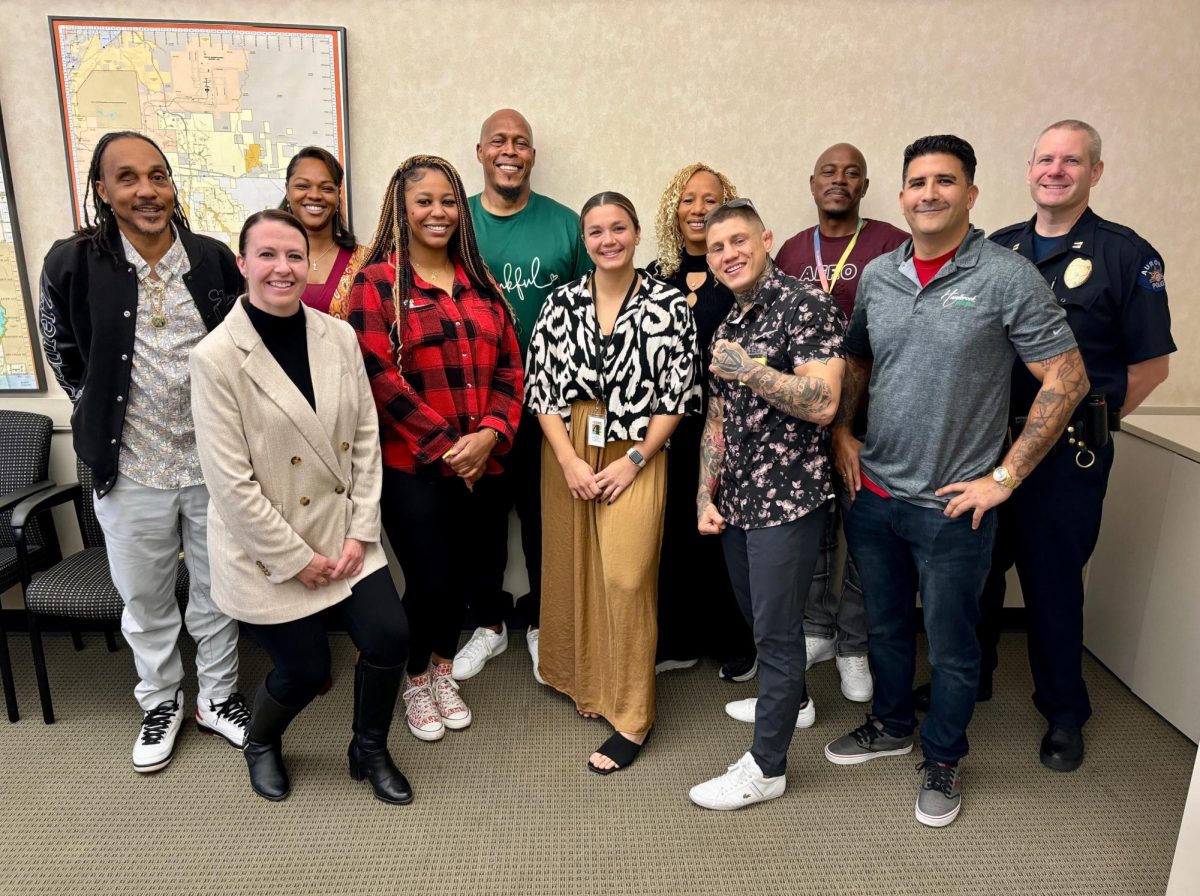Feature photo by: Kenny Nguyen- Senior Jung Park poses for a picture in the CCC. Park feels that Asian Americans are underrepresented in society.
“The other night I watched the Oscars / And the roster of the only yellow men were all statues.” South Korean rapper Dumbfounded raps in one of his songs, “Safe,” about Asian stereotypes and misconceptions, particularly in popular media and entertainment. Asian Americans represented 5.1% of speaking or named characters in Hollywood.
During the 2010 US Census, there were reportedly 17,320,856 Asian-Americans living in the US, a little less than six percent of the American population.

Personally, growing up an Asian-American, I have noticed that many Asian racial issues have been overlooked, and so have other Asian-Americans. It appears to me that discrimination towards the Asian community is more subtle than others. At CU Boulder Vincent Tran said, “I think that the majority of Asian population at Boulder is mostly foreign exchange students so [white people] have different ideas on them than Asian Americans. They’re wealthier, they show themselves off differently than Asian Americans.”
When asked about his feelings abouts Asian representation in media and society, senior Jung Park stated, “Asians, specifically, I think that we’re underrepresented in any social media… because we’re foreign, we came here to look for the American dream and people don’t realize our intentions, which I believe is very sad and disheartening.”
Many Asian-Americans came to America after conflict as refugees, or simply to escape their old life to find new and different opportunities in America, such as my parents.
My father came to the United States in order to escape the war in Vietnam, seeking a better life for himself. While in America, both of my parents faced racial prejudice and language barriers. My mother would tell me how she would face many difficulties in America. She explained to me that she had difficulties looking for jobs and that people and would sometimes encounter insensitive acts.
The first large influx of Asian Americans were the Chinese immigrants in the 1800s were they would face discrimination because they were willing to take jobs that white men would do for cheaper.
Japanese internment camps in America, created to house Japanese-American citizens during WWII, were established under the premise that they may be Japanese spies. Meanwhile, the United States created racist and degrading propaganda against the Japanese Empire. Rapper Mike Shinoda (in his side project, Fort Minor), narrates a story about his family’s experience in these internment camps in his song, “Kenji.”

According to a presentation by NPR, the Robert Wood Johnson Foundation, and the Harvard T.H. Chan School of Public Health, 61% of Asian Americans believe that there is discrimination against Asian Americans in the U.S. today.
About a third of Asian Americans have experienced slurs and insensitive or offensive comments about their race or ethnicity.
Senior Noah Sung expresses the same sentiment as Park; “I agree that there are racial problems that are overlooked, where people think we’re perfect or we don’t do any crimes or anything.”
When asked about certain stereotypes, Sung feels that, “[Stereotypes] most definitely are bad, because I feel like somebody sees you as someone else before you know them.”
Although I do believe that Asian discrimination is not as bad as other minority races, I do believe it is still an issue and that is is overlooked. Park claims, “Many people are under the impression that Asian stereotypes are ‘good’ because they involve schooling, grades, etc.” However, these stereotypes are considered “denial of racial reality” which is one theme in racial microaggression. This causes many people to overlook Asian issues because they believe that they are well off, when in reality they might not be.
Tran thinks, “Every field, athletics, arts, media, we’re underrepresented. The only good light we’re shown in are academics. I wish there was more representation of Asian in the media.”






